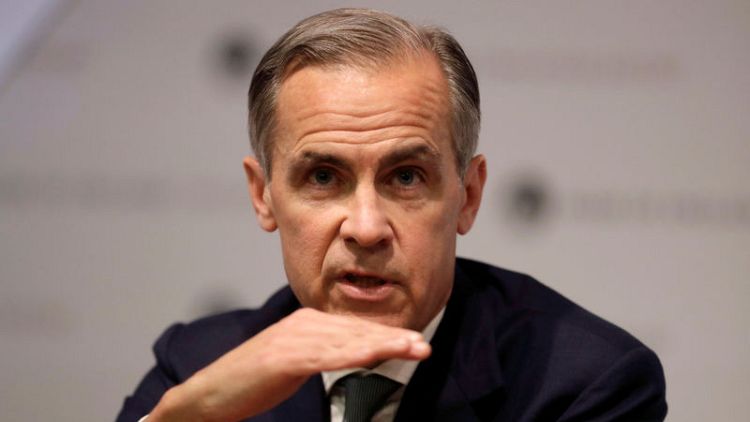By Jason Lange
WASHINGTON (Reuters) - Central bankers didn't see the Great Recession coming and they could miss the next downturn too, but new research out of the United States points to a possible way to make their predictions a little more accurate.
Economists and investors are increasingly training computers to read central bank reports to better understand policymaking or to make bets in financial markets.
A group of researchers at George Washington University has created an index for British economic growth based on the words used in a key section of the Bank of England's quarterly inflation reports.
They found that over the last two decades, the index was a pretty good predictor of how quickly the British economy would grow in the quarter after the release of each report.
Their algorithm looks at the frequency of words such as "robust," "brisk" or "soft" in the summary section of the BoE's quarterly report.
While the central bank's official forecasts were better at predicting growth, the researchers were surprised to discover the text-based score generally moved up or down in a way that would have improved the accuracy of official forecasts.
"The forecasts don't appear to capture all the information the central bank has about the outlook," said Tara Sinclair, an economist at George Washington University and a co-author of a working paper that describes the new research.
(Graphic - BOE text scoring, https://tmsnrt.rs/2Wkku8w)
Sinclair and her fellow researchers based their approach on a technique https://cer.columbian.gwu.edu/sites/g/files/zaxdzs2011/f/2014-005-2.pdf that economists, including a top researcher at the U.S. Federal Reserve https://www.federalreserve.gov/econresdata/notes/ifdp-notes/2016/predicting-fed-forecasts-20160212.html, have previously applied to the minutes of Fed policy meetings and the forecasts of Fed staff economists.
Like all methods of trying to peer into the future, the text score is not 100 percent reliable – it appeared to overestimate the risks of a British recession in 2001. In early 2008, neither the central bank's forecasts nor the text recognised that a recession was approaching. However, the text score appeared to predict economic deterioration slightly more quickly that year than did the BoE's growth forecasts.
The text scores have been persistently more dour than the central bank's official forecasts since the June 2016 referendum in which Britain voted to leave the European Union.
In the latest quarterly report released on Thursday, the index remained just below zero, suggesting Britain's year-over-year growth rate might be slightly slower in the third quarter than the 1.17 percent gain the BoE predicts will be announced in November, Sinclair said.
It's possible the BoE has taken to communicating economic risks over a longer-term horizon during the period following the Brexit referendum, making the word-based index less relevant for the short-term outlook.
The text score for Thursday's report was held back by negative words like "falling," which the central bank used to describe business investment.
Business investment in Britain has been weakening for over a year as companies worry about the country's still undefined future relationship with the EU, something that could change quickly once the Brexit uncertainty lifts.
Researchers have found central bankers often outperform private bankers https://eml.berkeley.edu/wp/c+dromer_aer2000.pdf at forecasting. Indeed, BoE Governor Mark Carney on Thursday pointed out to reporters that the central bank's forecasts over the last year had been very accurate.
"Overall GDP growth appears bang in line with our forecast," he said, while conceding the BoE had not gotten the drivers of the economy right as consumer spending was stronger than forecast while a bounce-back in business investment and exports had failed to materialize.
(Reporting by Jason Lange in Washington; Additional reporting by William Schomberg in London; Editing by Paul Simao)



